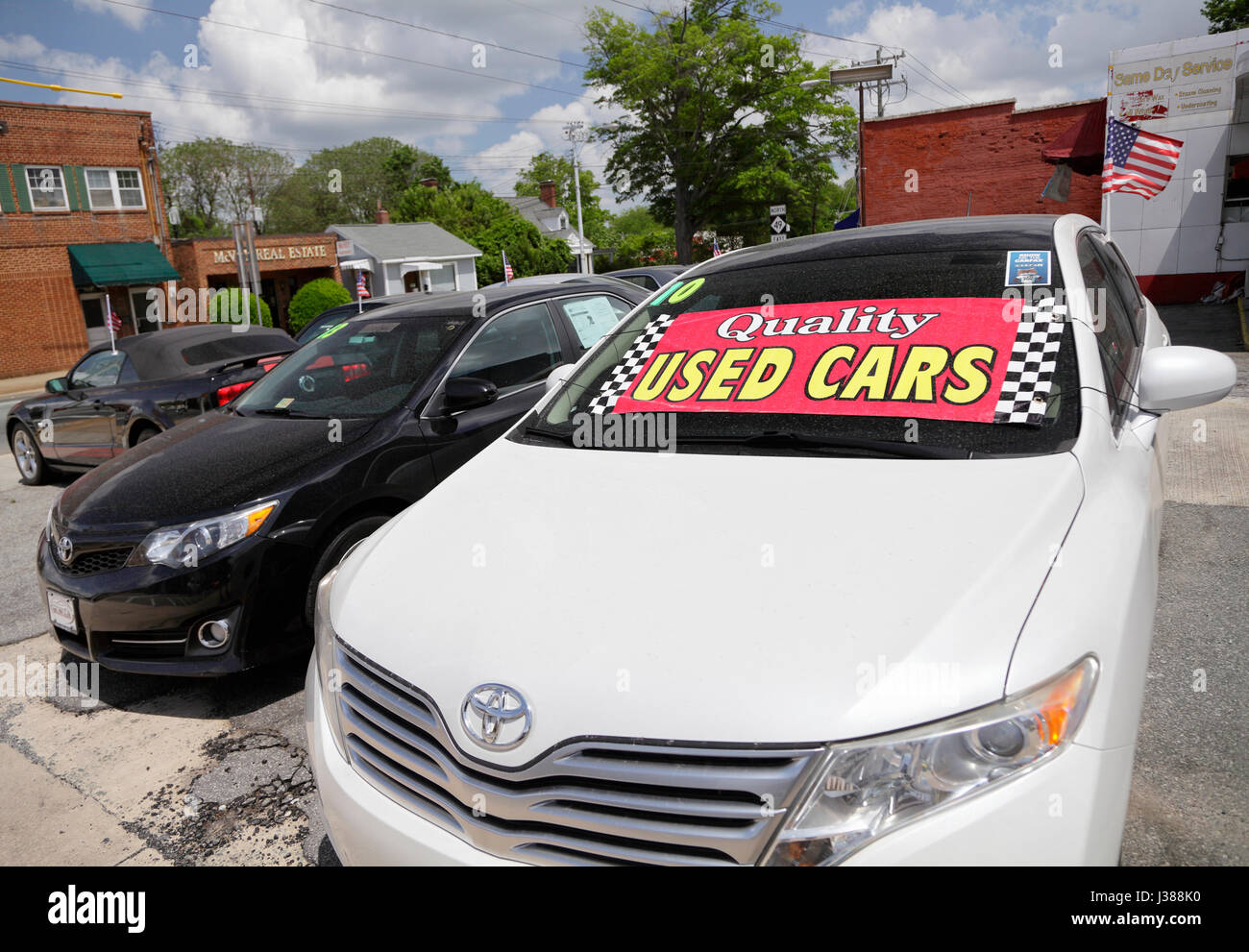Used Pickup Trucks For Sale By Owner: Your Ultimate Guide to a Smart Purchase pickup.truckstrend.com
Introduction: Unlocking Value in the Private Market
The rumble of a pickup truck engine often signals capability, utility, and freedom. Whether for work, recreation, or daily driving, a reliable truck is an indispensable tool for many. While new trucks come with hefty price tags and used trucks from dealerships carry their own markups, a significant and often overlooked segment of the market offers exceptional value: used pickup trucks for sale by owner.
Used Pickup Trucks For Sale By Owner: Your Ultimate Guide to a Smart Purchase
Buying a truck directly from its previous owner presents a unique opportunity. It bypasses the overheads and commissions of a dealership, potentially leading to substantial savings. More than just cost, it offers a direct line of communication with someone who knows the vehicle’s history intimately, providing insights that a dealership might not have. This comprehensive guide will navigate you through every step of the process, from finding the right truck to sealing the deal, ensuring your journey to owning a used pickup truck from a private seller is as smooth and successful as possible.
Why Buy From an Owner? The Undeniable Advantages
Choosing to purchase a used pickup truck directly from a private seller offers several compelling benefits that make it an attractive option for savvy buyers.
- Significant Cost Savings: This is often the primary motivator. Private sellers typically don’t have the overhead costs of a dealership (lot rent, sales commissions, advertising, reconditioning for profit), allowing them to sell vehicles at a lower price. You’re paying for the truck itself, not the business model.
- Direct Communication and Transparency: You get to speak directly with the person who has owned and driven the truck. This allows you to ask detailed questions about its history, maintenance records, driving habits, and any quirks it might have. An honest seller can provide a more accurate and nuanced picture of the vehicle’s life than a dealership might.
- Negotiation Flexibility: Private sellers often have more flexibility in pricing than dealerships, which operate on fixed profit margins. This can lead to more room for negotiation, especially if you come prepared with market research and a pre-purchase inspection report.
- Less Pressure: Unlike a dealership environment with sales targets and pushy tactics, private sales tend to be more relaxed. You can take your time, inspect the truck thoroughly, and make a decision without feeling rushed.
- Potentially Better Care: While not always the case, many individual owners take better care of their personal vehicles than large fleets or rental companies. You might find a truck that has been meticulously maintained and cherished.

Where to Find "For Sale By Owner" Trucks
The digital age has revolutionized how private sellers connect with buyers. Here are the most effective avenues for finding your next pickup:
- Online Marketplaces:
- Facebook Marketplace: A rapidly growing platform where local sellers list vehicles. It’s user-friendly and allows direct messaging.
- Craigslist: Still a popular choice for local private sales, though requires caution against scams.
- AutoTrader (Private Seller Section): A dedicated section for individual sellers, often with more detailed listings.
- eBay Motors: Great for a wider geographic search, often includes detailed photos and vehicle history reports.
- Local Classifieds Websites: Many regions have their own popular classified sites.
- Specialized Truck Forums/Groups: Online communities dedicated to specific truck brands (e.g., Ford F-150 forums, TacomaWorld) often have "for sale" sections where enthusiasts sell their well-maintained vehicles.

- Local Avenues:
- "For Sale" Signs: Keep an eye out for trucks with "For Sale" signs in windows or yards in your neighborhood.
- Word-of-Mouth: Let friends, family, and colleagues know you’re looking. You might be surprised who knows someone selling a truck.
- Community Bulletin Boards: Some local stores or community centers still have physical boards where people post items for sale.

When searching online, use specific keywords like "Ford F-150 for sale by owner," "Chevy Silverado private seller," or "used pickup truck private sale" to filter results effectively.
The Due Diligence: Evaluating a Used Truck
This is the most critical phase. A thorough inspection and verification process can save you from costly headaches down the line.
-
Initial Contact & Questions:
- Ask for specific details: Year, make, model, trim, mileage, engine size, drivetrain (2WD/4WD).
- Inquire about maintenance history: Has it been regularly serviced? Are records available?
- Ask about accidents or major repairs: Has the truck ever been in a collision? What repairs were made?
- Reason for selling: A legitimate reason (e.g., upgrading, downsizing) is a good sign. Be wary of vague answers.
- Title status: Ask if the title is clean and in the seller’s name.
-
Visual Inspection (Exterior & Interior):
- Exterior: Walk around the truck in daylight. Look for rust (especially common on truck frames, bed, and wheel wells), dents, scratches, misaligned panels (sign of accident repair), and uneven paint. Check tire tread depth and even wear.
- Interior: Check for excessive wear on seats, carpets, and steering wheel. Test all electronics: windows, locks, radio, A/C, lights, gauges. Look for water stains or musty odors, which could indicate leaks.
- Under the Hood: Look for fluid leaks (oil, coolant, transmission fluid). Check fluid levels and condition (clear, not sludgy). Look for frayed belts, cracked hoses, or corroded battery terminals.
-
Engine & Mechanical Check:
- Cold Start: Ask the seller not to start the truck before you arrive. Listen for abnormal noises (knocking, ticking, grinding) when the engine turns over.
- Idle: Once started, listen for a smooth idle.
- Exhaust Smoke: White smoke (coolant burn), blue smoke (oil burn), or black smoke (rich fuel mixture) are red flags.
- Transmission: Check fluid (if applicable and accessible).
- Suspension: Push down on each corner of the truck to test the shocks; it should rebound once or twice, not bounce excessively.
-
The Test Drive:
- Vary Speeds: Drive on different types of roads (city, highway, bumpy roads) to test acceleration, braking, and handling.
- Brakes: Test emergency braking (safely). Listen for squealing or grinding. Does the truck pull to one side?
- Steering: Does the steering feel loose, or does the truck pull to one side?
- Transmission: Pay attention to shifts. Are they smooth or jerky? Does it slip out of gear?
- Warning Lights: Ensure no check engine light, ABS light, or airbag light stays on after starting.
- 4WD (if applicable): Test all 4WD settings on a safe, unpaved surface.
-
Pre-Purchase Inspection (PPI): This is non-negotiable. Before finalizing any deal, have an independent, trusted mechanic perform a comprehensive PPI. They can spot issues you might miss, provide an estimate for necessary repairs, and give you peace of mind or a strong negotiation point.
-
Vehicle History Report (VHR): Purchase a report from services like CarFax or AutoCheck using the truck’s VIN. This report can reveal:
- Accident history
- Salvage, flood, or fire damage titles
- Odometer rollbacks
- Service history (if reported)
- Number of previous owners
- Lien information
Navigating the Negotiation and Paperwork
Once you’ve found a truck you like and it’s passed inspection, it’s time to talk numbers and complete the transaction.
- Research Market Value: Before negotiating, know the truck’s fair market value. Use resources like Kelley Blue Book (KBB.com) and NADAguides.com for "private party" values, adjusting for mileage, condition, and optional features.
- Negotiation Tactics:
- Be Polite and Respectful: A good rapport can go a long way.
- Highlight Findings: If the PPI revealed issues, use them as leverage for a lower price, backed by repair estimates.
- Start Lower: Offer a price slightly below what you’re willing to pay, leaving room for counter-offers.
- Be Prepared to Walk Away: If the seller isn’t reasonable or you’re uncomfortable, don’t feel pressured to buy.
- Payment Methods:
- Cashier’s Check/Bank Check: A secure method, as funds are guaranteed by the bank. Verify with the bank before transfer.
- Bank Transfer: Can be secure, but ensure it’s done through official bank channels.
- Avoid: Large sums of cash (safety risk), personal checks (can bounce), or wire transfers (hard to recover if scammed).
- Meet at a Bank: For safety and convenience, consider meeting at your bank where you can get a cashier’s check and complete the transaction.
- Title Transfer:
- Clean Ensure the seller has the actual title in hand and it’s free of any liens. If there’s a lien, the seller must pay it off before transferring ownership.
- Signatures: Both buyer and seller must sign the title as required by your state’s DMV. Verify the seller’s ID matches the name on the title.
- Odometer Disclosure: Most states require the seller to disclose the odometer reading on the title or a separate form.
- Bill of Sale:
- Crucial Document: A bill of sale protects both parties. It should include:
- Buyer’s and seller’s full names and addresses
- Vehicle year, make, model, VIN
- Sale price
- Date of sale
- Odometer reading at time of sale
- Statement that the vehicle is sold "as-is" (common in private sales)
- Signatures of both buyer and seller (and ideally, a witness).
- Keep Copies: Both parties should retain a signed copy.
- Crucial Document: A bill of sale protects both parties. It should include:
- Registration & Insurance:
- Temporary Tag: In some states, you might need a temporary tag to drive the truck home.
- Insurance: Obtain insurance coverage for the truck before driving it off the seller’s property.
- Register: Visit your local DMV or equivalent agency to officially transfer the title into your name and register the vehicle. You’ll typically need the signed title, bill of sale, proof of insurance, and possibly a smog certificate.
Potential Pitfalls and How to Avoid Them
While buying from an owner offers great benefits, it also carries risks that can be mitigated with vigilance.
- "As-Is" Sales: Most private sales are "as-is," meaning once you buy it, any problems become your responsibility. This underscores the importance of a PPI.
- Undisclosed Issues: Some sellers may intentionally hide problems. A thorough PPI and VHR are your best defense.
- Scams: Be wary of:
- Pressure Tactics: Sellers demanding immediate payment or refusing inspections.
- Unrealistic Prices: Prices that are too good to be true often are.
- Remote Sellers: Sellers who claim to be out of town and want to ship the car after payment.
- Overpayment Scams: Seller sends a check for more than the asking price and asks you to wire back the difference.
- Meet Safely: Always meet in a well-lit, public place, ideally during the day. Consider bringing a friend.
- Title Washing/Salvage Titles: A VHR is crucial to detect if a vehicle has been declared a total loss by an insurance company (salvage title) and then re-titled in another state to hide its history.
- Lien on Ensure the title is clear and free of liens. If a bank still holds the title, the seller must satisfy the loan before transferring ownership.
Popular Used Pickup Models to Consider
While specific recommendations depend on your needs and budget, some models consistently rank high for reliability and resale value in the used market:
- Ford F-150: Consistently America’s best-selling truck, offering a wide range of configurations and engines.
- Chevrolet Silverado 1500 / GMC Sierra 1500: Reliable workhorses with comfortable interiors.
- Ram 1500: Known for its comfortable ride and impressive interior features, especially in recent generations.
- Toyota Tacoma: Legendary for its reliability and strong resale value, especially popular for off-roading.
- Toyota Tundra: A full-size option from Toyota, also known for its durability.
- Honda Ridgeline: A unibody pickup offering a smoother ride and unique features, though less traditional truck capability.
Estimated "For Sale By Owner" Price Ranges for Popular Used Pickup Trucks (Highly Variable)
Please note: These are highly generalized estimates for trucks sold by owner in decent condition, varying wildly based on year, mileage, trim level, condition, location, and market demand. Always conduct your own research for specific models and years.
| Make/Model | Typical Model Years | Estimated Price Range (USD) | Key Considerations |
|---|---|---|---|
| Ford F-150 | 2010-2015 | $10,000 – $25,000 | Wide range of engines, popular, good parts availability. |
| 2016-2020 | $20,000 – $40,000+ | Aluminum body (lighter), more tech. | |
| Chevy Silverado 1500 | 2010-2015 | $9,000 – $24,000 | Reliable V8s, good for towing. |
| 2016-2020 | $18,000 – $38,000+ | Updated interiors, improved fuel economy. | |
| Ram 1500 | 2010-2015 | $8,500 – $23,000 | Coil spring rear suspension (smoother ride). |
| 2016-2020 | $17,000 – $37,000+ | Upscale interiors, EcoDiesel option. | |
| Toyota Tacoma | 2010-2015 | $12,000 – $28,000 | Legendary reliability, strong resale, off-road appeal. |
| 2016-2020 | $25,000 – $45,000+ | More modern features, still very popular. | |
| Toyota Tundra | 2010-2015 | $12,000 – $28,000 | Robust V8 engines, durable, good for heavy hauling. |
| 2016-2020 | $25,000 – $45,000+ | Less frequent redesigns, proven reliability. | |
| Honda Ridgeline | 2010-2014 | $8,000 – $18,000 | Unibody (car-like ride), integrated trunk, less towing. |
| 2017-2020 | $20,000 – $35,000+ | More refined, modern features. |
Disclaimer: These prices are approximate and can fluctuate significantly based on factors like:
- Condition: Excellent condition will fetch higher prices.
- Mileage: Lower mileage generally means higher prices.
- Trim Level: Basic work truck vs. loaded luxury trim.
- Location: Market demand varies by region.
- Market Trends: Overall used car market fluctuations.
Always use online valuation tools (KBB, NADA) for the specific year, trim, and mileage of the truck you are considering.
Frequently Asked Questions (FAQ) About Buying Used Pickup Trucks For Sale By Owner
Q1: Is it safe to buy a used truck from a private owner?
A1: Yes, it can be very safe if you follow proper precautions. Always meet in a public place, bring a friend, conduct a thorough inspection, get a Vehicle History Report (VHR), and insist on a pre-purchase inspection (PPI) by an independent mechanic.
Q2: What’s the most important thing to check when buying a used truck?
A2: A pre-purchase inspection (PPI) by a trusted, independent mechanic is arguably the single most important step. They can identify mechanical issues that you might miss and give you peace of mind or leverage for negotiation.
Q3: Do I need a bill of sale?
A3: Absolutely. A bill of sale is a legal document protecting both the buyer and seller. It details the transaction, including the sale price, vehicle information, and the "as-is" condition, if applicable. Keep a signed copy for your records.
Q4: How do I know if the price is fair?
A4: Research the truck’s market value using reputable sources like Kelley Blue Book (KBB.com) or NADAguides.com for "private party" values. Compare similar trucks for sale in your area. Consider the truck’s condition, mileage, and features when evaluating the price.
Q5: Can I finance a private party purchase?
A5: Yes, many banks and credit unions offer loans for private party vehicle purchases. You’ll typically need to get pre-approved for the loan, and the bank may require a lien on the vehicle title until the loan is paid off. Discuss the process with your lender beforehand.
Q6: What if the seller doesn’t have the title?
A6: Do NOT proceed with the purchase. The seller must have a clear title in their name to legally transfer ownership. If there’s a lien on the title (e.g., they still owe money on a loan), they must pay it off and obtain a clear title before the sale can be finalized.
Q7: How do I handle registration and plates after buying?
A7: After the sale, you’ll need to visit your state’s Department of Motor Vehicles (DMV) or equivalent agency. Bring the signed title, bill of sale, proof of insurance, and possibly a smog/emissions certificate. You will pay sales tax and registration fees, and then you’ll receive your new plates and registration.
Conclusion: Your Path to a Great Truck Awaits
Buying a used pickup truck for sale by owner can be an incredibly rewarding experience, offering significant savings and a clearer understanding of your vehicle’s history. While it requires more proactive effort and due diligence than purchasing from a dealership, the benefits of direct communication, negotiation flexibility, and potentially lower prices are well worth it.
By following the steps outlined in this guide – from meticulous research and thorough inspection to careful negotiation and proper paperwork – you empower yourself to make a smart, informed decision. Embrace the process, be patient, and soon you’ll be behind the wheel of a reliable pickup truck that perfectly fits your needs and budget, ready for your next adventure or demanding task. Happy truck hunting!


